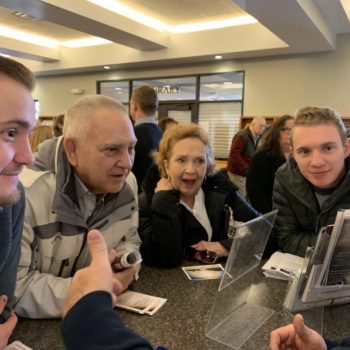As parents, we guide, care for, and protect our children. We make informed, researched, and well-intentioned medical decisions and protect their health and well being. But on their 18th birthdays, they legally become strangers, off-limits to us from a medical and legal perspective. Without a HIPAA form or Health Care proxy, we no longer have access to their medical information. It also keeps us from guiding their care. Not being able to order refills of allergy medicine is inconvenient; not getting information about your child’s condition during a medical emergency can be traumatic and life-threatening.
While it feels a bit morbid to worry about worst-case scenarios, consider that accidents are the leading cause of death for young adults. A quarter-million young adults between the ages of 18 and 25 are hospitalized with non-lethal injuries each year. Now add the likelihood of your offspring living away from home to attend college, traveling abroad, or even heading to the beach for spring break, then needing medical care for anything from a car accident to appendicitis. Not only do we want to know what’s going on with our children, in many cases we need to know to best guide their care.
Health Insurance Portability and Accountability Act (HIPAA) Form
The best way to ensure you have access to medical information is to have your child complete a HIPAA (Health Insurance Portability and Accountability Act) form. This simple document authorizes medical care professionals to release and share your young adult child’s medical information with you and others named on the form. Include and list separately each parent who may need authorization. In blended family situations, this list could include several names. The trick with HIPAA forms and the accident-prone, nomadic nature of young adults is to keep an image of this signed document electronically accessible at all times. Many parents and children will store images of the form in their phones or in a shared drive accessible via the internet.
Healthcare Proxy
So, the HIPAA form allows access to the information. But what about actually making medical decisions when your child is unable? That’s where the health care proxy comes in. The health care proxy, otherwise known as a health care power of attorney, is a separate document that allows you to make medical decisions on behalf of your adult child when he or she is physically unable to do so.
A side benefit of completing these documents is introducing an important conversation with your child about privacy and responsibility. Together you can discuss what medical privacy means to you and when full access might be appropriate. A tip is to reinforce the point that the HIPAA form and health care proxy form pertain to medical information and healthcare decisions. They do not include access to transcripts (that’s a separate document and a different conversation), not to bank accounts, and not to parking tickets.
Your family or estate attorney should be able to assist with the preparation of HIPAA forms and health care proxy documents as part of your routine estate document package. More information is available by contacting your SYM advisor.



